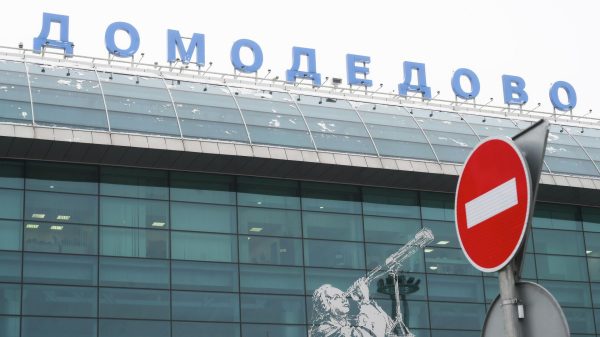
Nicolas Sarkozy has become France’s first former president to appear in the dock as he went on trial accused of corruption and influence peddling for allegedly trying to bribe a judge for information.
The former leader was called under his full name, Mr Sarkozy de Nagy-Bocsa. He responded that “Sarkozy was enough”. Reminded that the legal record demanded his full name, he added: “For the moment I don’t need to use it.”
Sarkozy arrived at the court shortly after 2pm on Monday, choosing a little-used entrance to avoid the cameras outside. Inside the tribunal building, police kept journalists at a distance. He left when the case was adjourned about an hour later.
His appearance in the dock was brief; one of his two co-defendants had requested the hearing be postponed because coronavirus makes it too risky for him to appear in court. The court agreed to adjourn the hearing until Thursday for a medical report.
Before Monday’s trial, Sarkozy, 65, who has repeatedly denied the accusations, told French television he was ready for the courtroom battle.
“I am combative. I have no intention of being accused of things I haven’t done. I’m not corrupt and what has been inflicted on me is a scandal that will rest in the annals. The truth will out,” Sarkozy told BFMTV earlier this month.
Only one other president, Sarkozy’s political mentor Jacques Chirac, has faced trial after leaving office – but because of ill health Chirac never appeared in court for his conviction in a fake-jobs scandal.
The case is the first of several investigations against the rightwing politician who led France between 2007 and 2012 to come before judges after years of attempts to have the charges dropped or nullified.
In what is known as the “bugging affair”, the prosecution alleges Sarkozy and his lawyer, Thierry Herzog, attempted to bribe a senior magistrate, Gilbert Azibert, to hand over secret information from a separate investigation against the former French leader. In return, Sarkozy is accused of offering to help secure Azibert a cushy job on the Côte d’Azur.
Sarkozy has been targeted in an array of legal investigations – from allegations of receiving illicit campaign funding from the late Libyan leader Muammar Gaddafi to receiving alleged kickbacks from arms sales to Pakistan.
French detectives began monitoring Sarkozy’s communications in September 2013 as part of an investigation into claims he had received an undeclared and illegal €50m donation from Gaddafi to fund his successful 2007 presidential campaign.
What they heard from the recorded conversations, however, pointed investigators in a new and unexpected direction. They revealed the former president and Herzog were “secretly” communicating using mobile telephones registered under false names. Sarkozy’s phone was attributed to a Paul Bismuth.

Additional wiretaps on these phones picked up conversations suggesting Sarkozy had been in contact with Azibert, then a member of the cour de cassation – the highest court in France – via Herzog to request confidential information about a separate investigation into whether Sarkozy received donations from the ailing L’Oréal heiress Liliane Bettencourt.
The Bettencourt case was eventually dropped, but by then an investigation into corruption and influence peddling relating to the wiretaps had been opened.
Sarkozy has always strenuously denied any wrongdoing in all past and present investigations. He has previously claimed the Bismuth accusations were “an insult to my intelligence”.
Herzog also argued that the bugging and recording of their phones broke client confidentiality rules, but his repeated attempts to have the evidence thrown out or the case dismissed failed.
The three defendants, Sarkozy, Herzog and Azibert, risk up to 10 years in prison and hefty fines if convicted.
Sarkozy is expected to appear in court next year in yet another case, the “Bygmalion affair”, in which he is accused of overspending on his 2012 re-election bid. No dates have been set for court hearings in other investigations linked to Sarkozy.





















































Свежие комментарии